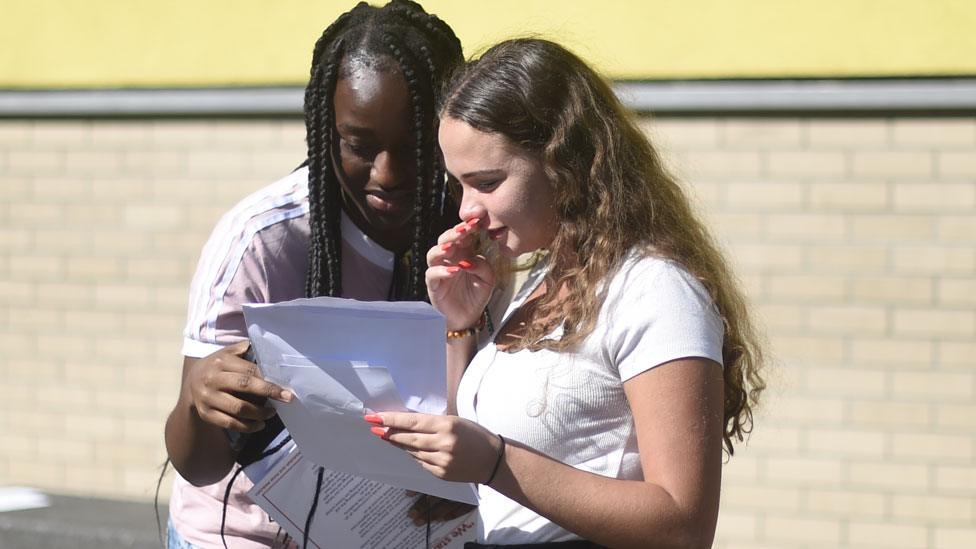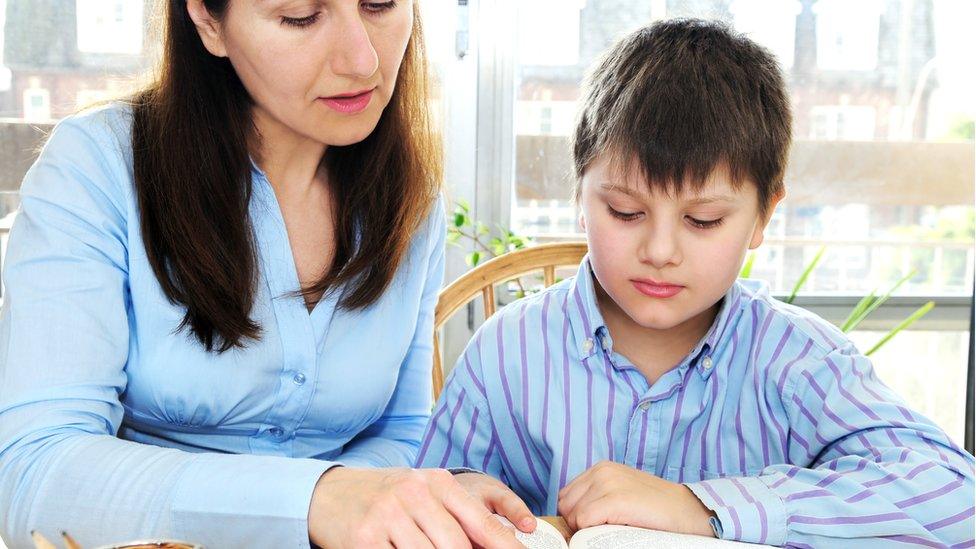Quarter of secondary pupils 'get private tuition'
- Published
- comments

More than a quarter of secondary school pupils in England and Wales have received private tuition, according to research published by the Sutton Trust.
The highest levels are in London - with 41% of secondary pupils getting extra lessons outside of school, it says.
The social-mobility charity is calling for financial support for disadvantaged families to have access to tutoring.
"With costs of at least £25 per session, many parents can't afford it," said charity founder Sir Peter Lampl.
The annual report from the Sutton Trust tracks the prevalence of parents paying for tuition.
Wealth gap
Such extra lessons have been seen as a hidden factor in exam results - but because of the cost, the charity warns this gives richer families an unfair advantage.
Based on evidence from the National Foundation for Educational Research and a survey of almost 3,000 families, the report suggests 27% of 11 to 16-year-olds have had some private tuition while at secondary school.
This is higher than the 18% who received tutoring in 2005 but has fallen back on a couple of years ago, when 30% had paid for extra lessons, it says.
But the use of tutors is skewed towards the affluent, with 34% of better-off families having used tutors compared with 20% of less well-off families.
Paying for extra tuition is twice as common in England than Wales - 28% to 14% - and a separate figure for London suggests much higher levels of 41%.

Extra help with GCSEs is the most common reason families pay for private tuition, the research suggests
The most common reasons given for hiring tutors were helping with a specific GCSE exam and "schoolwork in general".
The research suggests almost a quarter of classroom teachers in secondary school have worked as private tutors in the past two years, with most of these providing lessons after being asked by parents.
Tuition vouchers
The Sutton Trust says there is evidence such individual tutoring can make a positive difference.
But it says there needs to be a way of making it available to the disadvantaged, such as providing means-tested vouchers.
Trust founder and chairman Sir Peter Lampl said such a scheme would "enable lower-income families to provide tuition for their children" in an environment in which "private tuition is widespread".
Mary Bousted, joint leader of the National Education Union, said such subsidies for tuition could seem appealing but the money would be better spent increasing budgets for underfunded schools or pupil premium funding to support disadvantaged pupils.
Labour's annual conference has backed calls to move private schools into the state sector, but a party spokesman said this would not affect private tutoring outside school.

- Published7 September 2017

- Published23 April 2014
